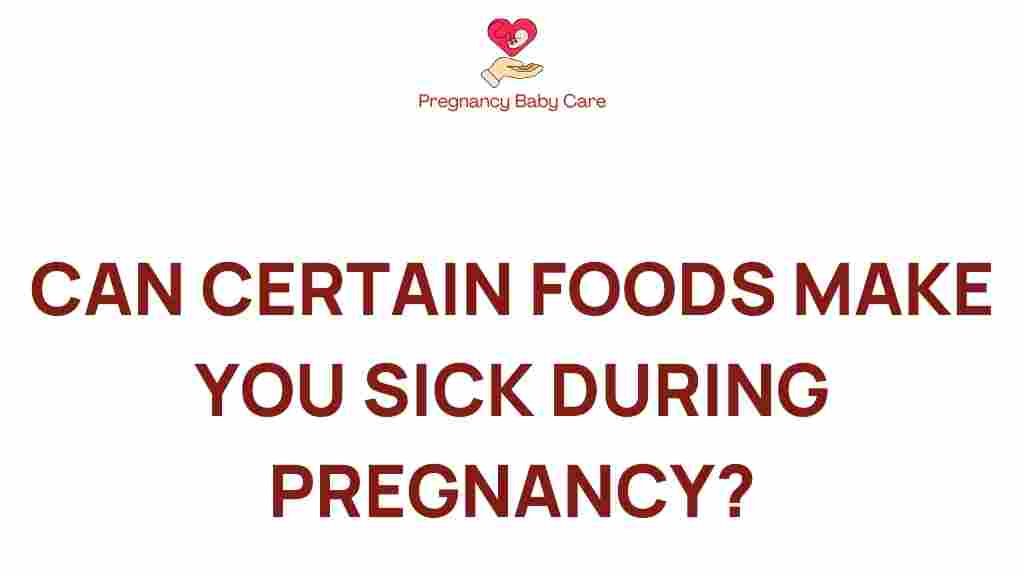Can Your Diet Harm You? Uncovering Pregnancy’s Culinary Risks
Pregnancy is a miraculous journey, bringing new life into the world while also presenting unique challenges for maternal health. One of the most critical aspects of this journey is diet. A well-balanced diet can support both the mother and the developing fetus, but it can also pose significant health risks if not managed correctly. In this article, we will explore the intricacies of nutrition during pregnancy, focusing on food safety, health risks, and safe eating practices to ensure a healthy prenatal experience.
The Importance of Nutrition in Pregnancy
Nutrition is vital during pregnancy, as it directly impacts the health of both the mother and the baby. A proper diet provides essential vitamins and minerals that support fetal development. Here are some key nutritional components to focus on:
- Folic Acid: Crucial for neural tube development, which occurs in the first trimester.
- Iron: Supports increased blood volume and helps prevent anemia.
- Calcium: Essential for the development of the baby’s bones and teeth.
- Omega-3 Fatty Acids: Important for brain development.
- Protein: Supports the growth of fetal tissues, including the brain.
While focusing on these nutrients, it’s equally important to be aware of potential health risks associated with food during pregnancy.
Understanding Food Safety During Pregnancy
Food safety is a crucial aspect of maternal health. Pregnant women are more susceptible to foodborne illnesses due to changes in their immune system. Here are some common foodborne pathogens to be aware of:
- Salmonella: Often found in undercooked poultry and eggs.
- Listeria: Can be present in unpasteurized dairy products and deli meats.
- E. coli: Usually associated with undercooked beef and contaminated vegetables.
To reduce the risk of these illnesses, follow these safe eating practices:
Safe Eating Practices During Pregnancy
Implementing safe eating practices is essential for preventing foodborne illnesses. Here are some guidelines to consider:
- Wash Your Hands: Always wash your hands before handling food.
- Clean Surfaces: Ensure that all cooking surfaces are sanitized before preparing food.
- Cook Food Thoroughly: Use a food thermometer to ensure meats are cooked to the appropriate temperature.
- Avoid Raw Foods: Stay away from raw or undercooked fish, eggs, and meats.
- Check Labels: Always read food labels for safety information and allergens.
Following these guidelines can significantly reduce the risk of foodborne illness during pregnancy, ensuring a safer culinary experience.
Common Dietary Risks in Pregnancy
While some foods are beneficial, others can present health risks. Here are specific foods and substances to avoid during pregnancy:
- High-Mercury Fish: Fish like shark, swordfish, and king mackerel should be avoided due to high mercury levels.
- Caffeine: Limit caffeine intake, as excessive consumption can lead to complications.
- Alcohol: There is no safe level of alcohol consumption during pregnancy.
- Unpasteurized Products: Avoid unpasteurized dairy and juices that can harbor harmful bacteria.
Being informed about these dietary risks can help you make better choices for your health and your baby’s health.
Step-by-Step Process for Safe Eating During Pregnancy
To ensure your diet supports your pregnancy, follow this step-by-step process:
- Plan Your Meals: Create a balanced meal plan that includes a variety of nutrients.
- Shop Safely: Choose fresh produce, meats, and dairy, and avoid items that appear spoiled.
- Prepare Food Properly: Follow safe cooking practices, including washing, cooking, and storing food correctly.
- Monitor Food Intake: Keep track of what you eat to ensure you are getting the necessary nutrients.
- Consult a Professional: Speak with a healthcare provider or nutritionist for personalized dietary advice.
Troubleshooting Dietary Challenges
Sometimes, challenges arise during pregnancy that can affect your diet. Here are some common issues and how to address them:
- Nausea and Vomiting: Eat small, frequent meals and avoid strong odors.
- Food Cravings: Opt for healthier versions of cravings, and ensure moderation.
- Increased Appetite: Focus on nutrient-dense foods rather than empty calories.
If you experience persistent issues, consult your healthcare provider for guidance.
Benefits of a Well-Balanced Diet
Maintaining a well-balanced diet during pregnancy brings numerous benefits, including:
- Improved Maternal Health: A balanced diet can help manage weight gain and reduce complications.
- Healthy Fetal Development: Provides essential nutrients for the baby’s growth and development.
- Better Postpartum Recovery: A nutritious diet aids recovery after childbirth.
By focusing on safe eating practices and understanding the risks associated with certain foods, mothers can greatly enhance their prenatal care experience.
Conclusion
Your diet during pregnancy plays a pivotal role in your health and the health of your baby. Understanding food safety, nutrition, and potential health risks can empower you to make informed dietary choices. Remember, it’s always advisable to consult with healthcare professionals regarding your specific needs and any concerns you may have. For more information on pregnancy and nutrition, visit this resource.
By prioritizing safe eating habits and making conscious food choices, you can embark on this incredible journey with confidence, ensuring the best possible start for your baby. Embrace this opportunity to nourish both yourself and your little one!
This article is in the category Pregnancy and created by PregnancyBabyCare Team
